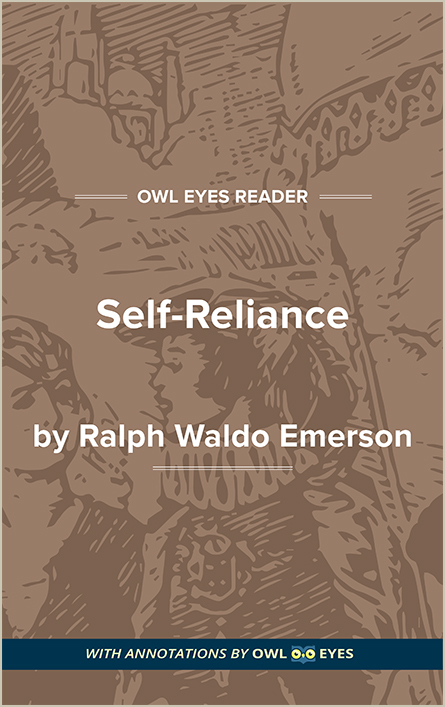Analysis Pages
Themes in Self-Reliance
Themes Examples in Self-Reliance:
Self-Reliance
🔒"Every great man is a unique...." See in text (Self-Reliance)
"Insist on yourself; never imitate. Your own gift you can present every moment with the cumulative force of a whole life's cultivation; but of the adopted talent of another you have only an extemporaneous half possession...." See in text (Self-Reliance)
"a new system..." See in text (Self-Reliance)
"For every stoic was a stoic; but in Christendom where is the Christian?..." See in text (Self-Reliance)
"but what they thought..." See in text (Self-Reliance)
"“without abolishing our arms, magazines, commissaries and carriages, until, in imitation of the Roman custom, the soldier should receive his supply of corn, grind it in his hand-mill and bake his bread himself.”..." See in text (Self-Reliance)
"To be great is to be misunderstood..." See in text (Self-Reliance)

